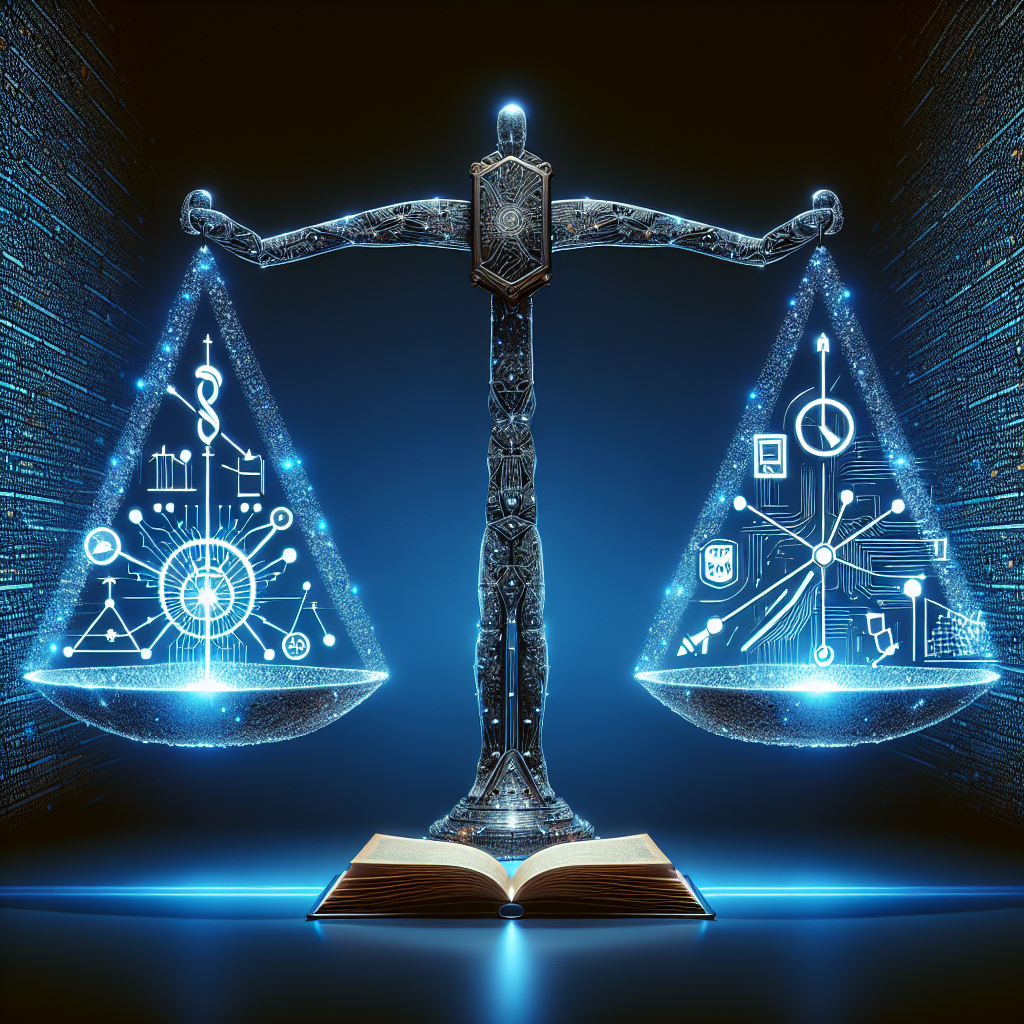Introduction
Artificial Intelligence (AI) is transforming industries, reshaping economies, and changing our daily lives. While these technologies are innovative, they also present significant ethical challenges. The swift evolution of AI has outpaced regulatory frameworks, underscoring the urgent need to explore the ethical implications of these advancements. The discussion around AI ethics raises critical questions: How can we stimulate innovation while ensuring accountability? What obligations do developers and organizations have towards society?
The Double-Edged Sword of Innovation
AI possesses extraordinary potential to boost productivity, streamline processes, and deliver insights previously deemed impossible. Across various sectors, from healthcare to finance, AI-driven solutions enhance efficiency and accuracy. However, this technological advancement brings ethical dilemmas, including embedded biases in algorithms, concerns about privacy, and the risk of job displacement.
1. The Bias Factor
A significant concern in AI ethics is the issue of bias. Algorithms are only as reliable as the data on which they are trained, and if this data reflects societal biases—such as those related to race, gender, or socioeconomic status—these biases may become deeply rooted in AI systems. For example, facial recognition technology has demonstrated notably higher error rates for individuals with darker skin tones, leading to disproportionate scrutiny or wrongful accusations and raising essential questions about fairness and justice in AI application.
2. Privacy and Surveillance
The capabilities of AI often necessitate the collection and analysis of vast amounts of personal data. Although this can result in personalized experiences, it also raises concerns about privacy. Individuals frequently give consent for their data to be used in ways that may affect them without their awareness. The ethical implications of surveillance technologies, particularly those utilized by state authorities, further intensify these concerns, challenging civil liberties and individual rights.
3. Job Displacement and Economic Impact
AI’s ability to automate tasks poses a considerable threat to employment across various sectors. While innovation can create new job opportunities, it is vital to comprehend its effects on the workforce transition as a whole. Finding a balance between technological progress and workforce stability is essential, highlighting the need for retraining programs and policies that endorse equitable economic growth.
The Ethical Framework
To navigate these complexities, a strong ethical framework is essential. Organizations must embrace principles that emphasize fairness, accountability, transparency, and inclusivity.
1. Fairness
Ensuring fairness in AI requires examining algorithms and their training data for biases. Developers must adopt practices that proactively identify and mitigate these biases, fostering equity in AI results.
2. Accountability
Accountability in AI development goes beyond the technology itself; it includes the individuals and organizations responsible for creating and implementing these systems. Establishing clear accountability measures is crucial for ensuring that AI usage aligns with ethical standards.
3. Transparency
Transparency is vital for building trust in AI. Clear communication regarding how AI models function, the data they utilize, and their potential limitations can demystify the technology and enhance consumer confidence.
4. Inclusivity
Incorporating diverse perspectives during the design and development of AI can help facilitate systems that better represent the society they serve. Engaging stakeholders from various backgrounds can result in more ethical outcomes and innovations.
Regulatory Landscape and Future Directions
As AI technologies progress, regulatory frameworks must evolve accordingly. Governments and organizations globally are beginning to lay down guidelines aimed at ensuring ethical AI implementation. Initiatives like the European Union’s proposed AI regulation illustrate a proactive strategy to tackle these challenges.
Nevertheless, regulation should not hinder innovation. A collaborative approach that involves technologists, ethicists, policymakers, and the public can lead to a balanced paradigm that encourages responsible innovation. Ongoing dialogue and flexible policies will be crucial for navigating the ever-evolving landscape of AI technology.
Conclusion
AI is a powerful tool that has the potential to positively transform society. However, its ethical implications must not be overlooked. As we advance into this new frontier, prioritizing ethical considerations alongside technological progress is essential. By fostering a culture of responsibility and inclusivity in AI development, we can unlock its potential while upholding fundamental ethical principles, ensuring that innovation benefits humanity rather than undermines it.

